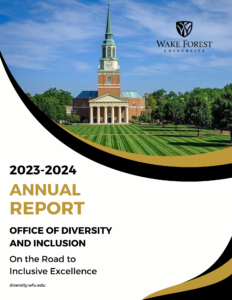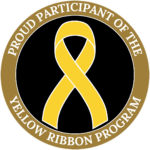Inclusion & Belonging
Wake Forest Law is a community that welcomes and values people from all backgrounds, strives to cultivate spaces where members feel included and connected, and acknowledges that our work is ongoing, imperfect, and never finished.
We seek to not only develop leaders who excel in the legal field, but people who embody the University’s motto of Pro Humanitate, or “for humanity.” For humanity doesn’t simply mean serving others, it means living out core values—day in and day out. We’re committed to creating a culture where everyone feels safe to come as they are, try something different, ask the hard questions, challenge the status quo, and learn more than the law.
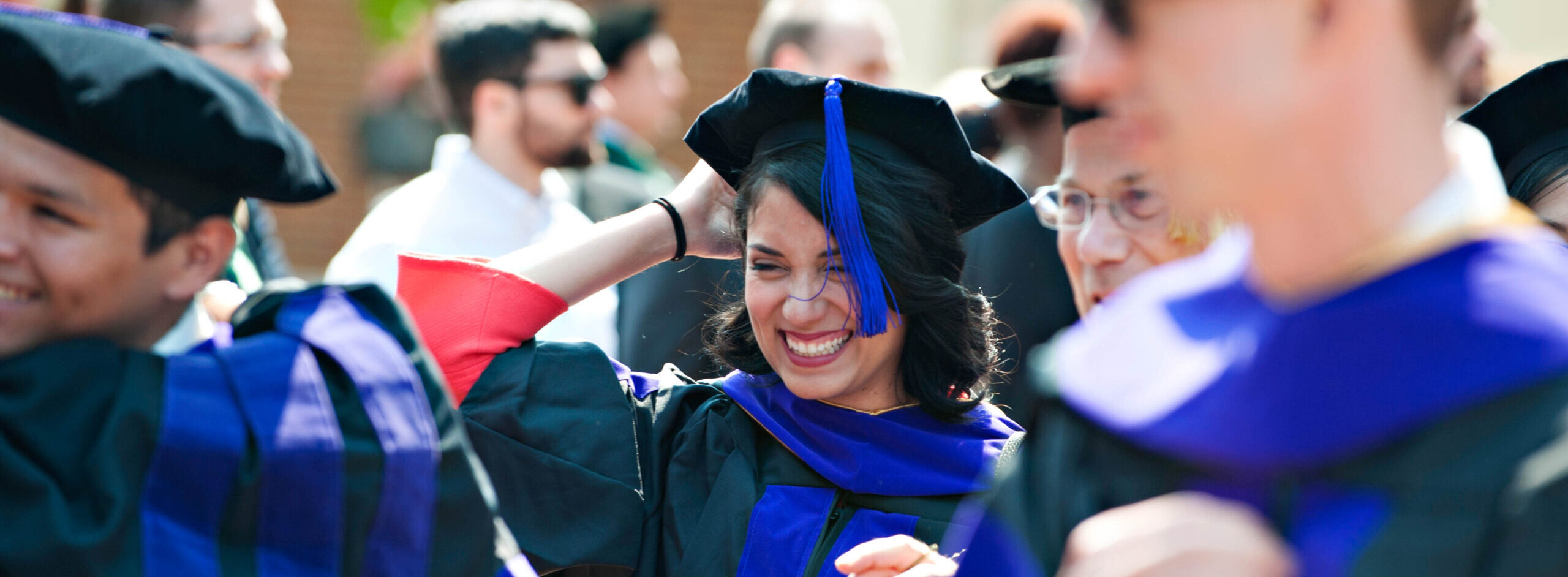
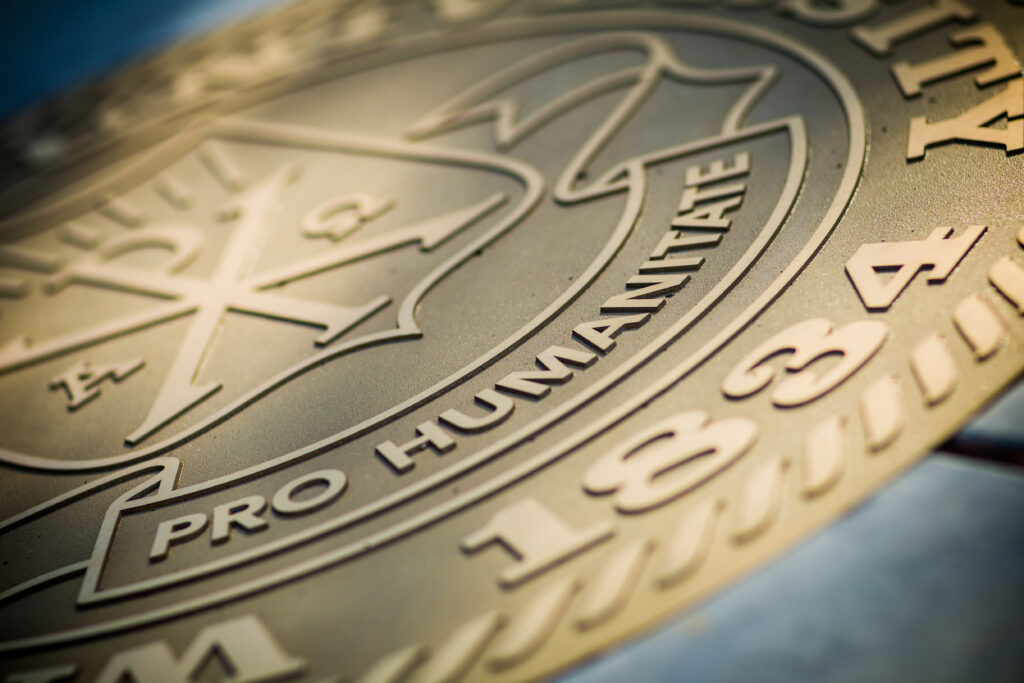
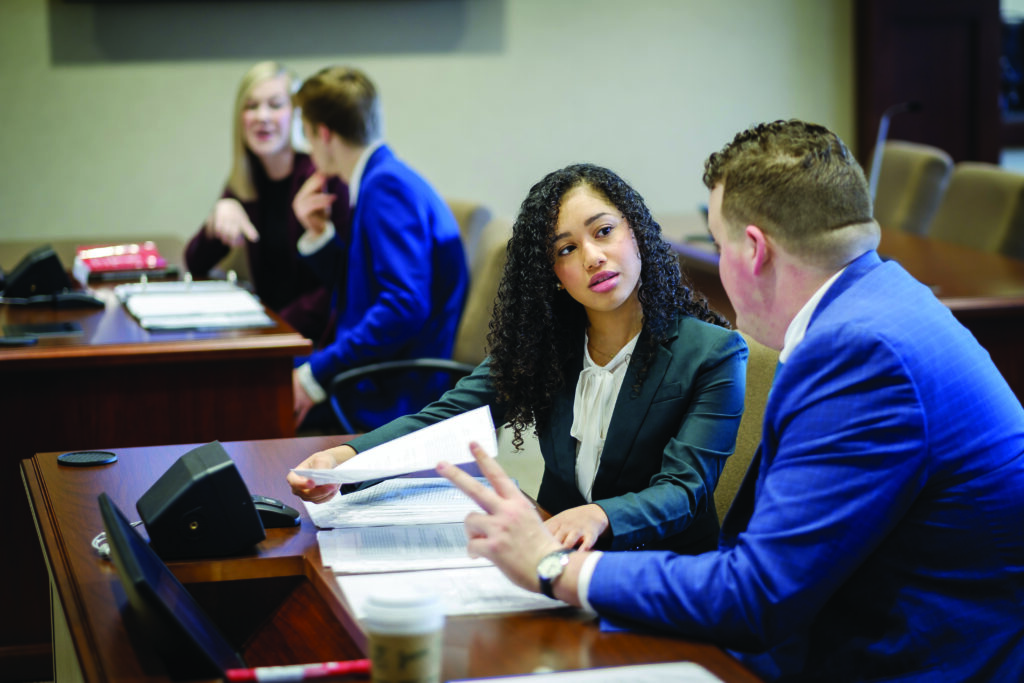
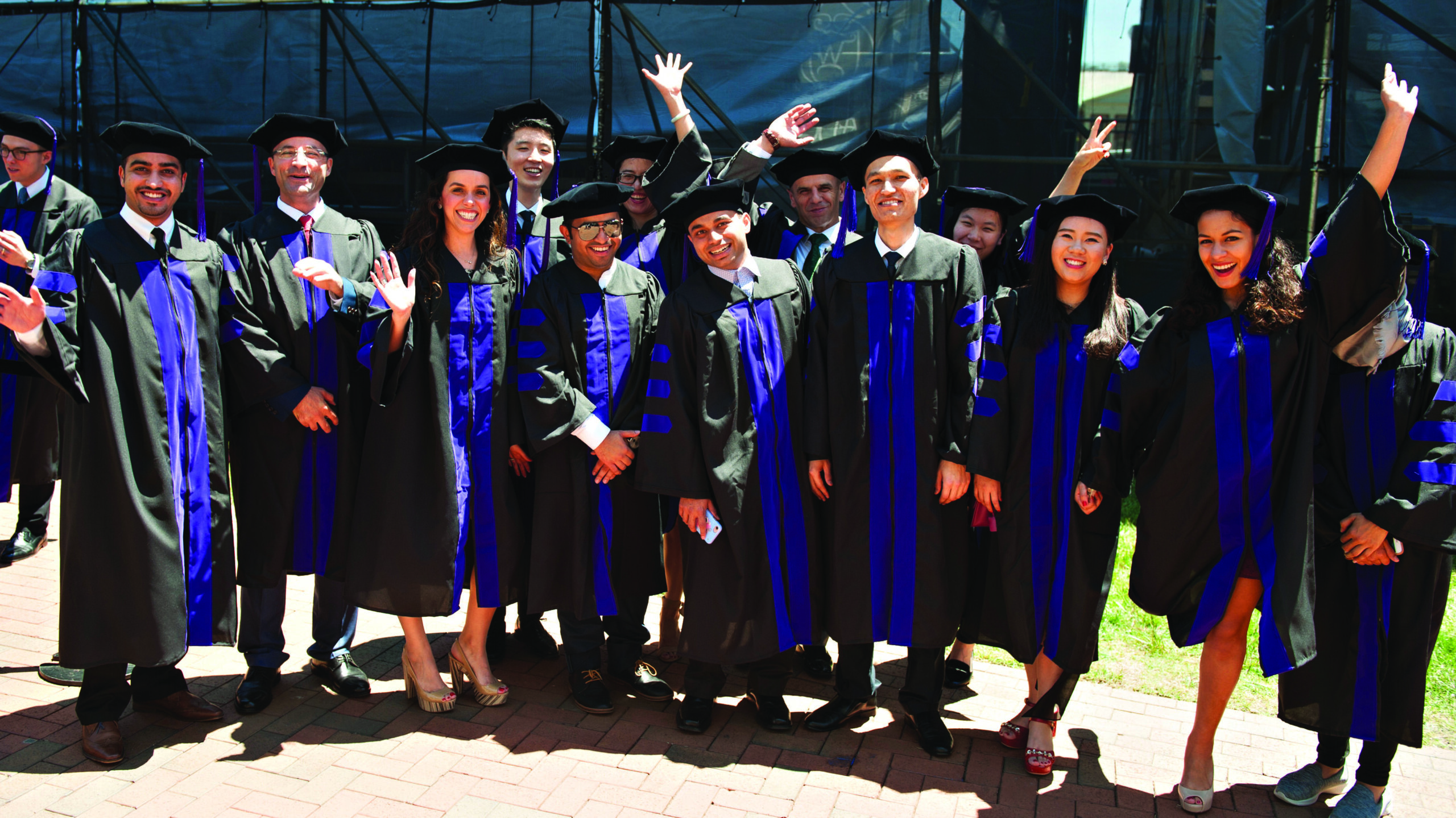
Affinity Groups
From Parents Attending Law School’s (PALS) Halloween haunted house, to the Black Law Students Association (BLSA) annual banquet, to OUTLaw’s “State of the Q-Union” panel, Wake Forest Law’s 20+ student organizations and affinity groups organize programming and events that are open to all and foster inclusivity and belonging.
Advancing Inclusion & Belonging
Wake Forest Law is collaborating closely with ODI to identify DEI-related strategic opportunities for the Law School, participate in assessments and trainings, and offer guidance to student organizations.
Our Office of Career & Professional Development offers numerous events and sessions throughout the year centered around navigating diversity fellowships, job opportunities, and the legal profession post-law school. Past events have included a “Minorities in the Profession Networking Lunch” and “Legal Desert….or Legal Oasis? Tackling Access to Justice in NC.”
This faculty committee makes recommendations on ways in which Wake Forest Law can promote success for all students within our richly diverse, equitable, and inclusive community. For example, the committee recently developed a recommended impact assessment tool to encourage careful consideration of how Law School policies and practices can foster achievement, inclusion, and belonging.
Faculty Scholarship on Race & Equity
Many Wake Forest Law faculty are experts in areas of the law that are inextricably tied to race, equity, and diversity. These include civil rights, anti-discrimination law, disability law, sexual orientation and gender identity, poverty law, and others.
By focusing their research and scholarship on these critical areas, these faculty members enrich the public discourse and equip current and future legal practitioners with the knowledge, tools, and critical thinking skills to address systemic injustices. Their scholarship and engagement encourages a more inclusive and equitable legal system and informs policy change, advances social justice, and helps to shape society.
Below are just a few examples of this important work:
 “Affirmative Reaction: The Blueprint for Diversity and Inclusion in the Legal Profession After SFFA,” Boston University Law Review (March 3, 2024) – Brenda Gibson
“Affirmative Reaction: The Blueprint for Diversity and Inclusion in the Legal Profession After SFFA,” Boston University Law Review (March 3, 2024) – Brenda Gibson
 “After Affirmative Action: Contextual Admissions and the Future of African American Law School Enrollment,” 76 OKLA. L. REV (2024) – Nathan Fleming
“After Affirmative Action: Contextual Admissions and the Future of African American Law School Enrollment,” 76 OKLA. L. REV (2024) – Nathan Fleming
 “America’s Race-Based Caste Structure: Its Impact in College and Professional Sports,” 9 Tex. A&M L. Rev. 599 (2022) – Timothy Davis
“America’s Race-Based Caste Structure: Its Impact in College and Professional Sports,” 9 Tex. A&M L. Rev. 599 (2022) – Timothy Davis
 “Assessing the Racial Implications of NCAA Academic Standards,” 29 Wm. & Mary J. Race, Gender, & Soc. Just. 1 (2022) – Timothy Davis
“Assessing the Racial Implications of NCAA Academic Standards,” 29 Wm. & Mary J. Race, Gender, & Soc. Just. 1 (2022) – Timothy Davis
 “Building Racial Equity into Land Use and Zoning,” 2 HARV. ANTI RACISM POL’Y J (2023) – Nathan Fleming
“Building Racial Equity into Land Use and Zoning,” 2 HARV. ANTI RACISM POL’Y J (2023) – Nathan Fleming
 “Caregiver Accommodation,” 44 Berkley J. Emp. & Lab. L. 207 (2023) – Abigail Perdue
“Caregiver Accommodation,” 44 Berkley J. Emp. & Lab. L. 207 (2023) – Abigail Perdue
 “The Color of Law Review,” (with Etienne C. Toussaint) Boston University Law Review (2023) – Gregory Parks
“The Color of Law Review,” (with Etienne C. Toussaint) Boston University Law Review (2023) – Gregory Parks
 “‘Don’t Say Gay’ laws harm students already at risk,” The Atlanta Journal-Constitution (February 17, 2023) – Marie-Amelie George
“‘Don’t Say Gay’ laws harm students already at risk,” The Atlanta Journal-Constitution (February 17, 2023) – Marie-Amelie George
 Family Matters: Queer Households and the Half-Century Struggle for Legal Recognition, 2024 – Marie-Amelie George
Family Matters: Queer Households and the Half-Century Struggle for Legal Recognition, 2024 – Marie-Amelie George
 Fight the Power: Law and Policy through Hip Hop Songs, (with Frank Rudy Cooper) Cambridge University Press (February 2022) – Gregory Parks
Fight the Power: Law and Policy through Hip Hop Songs, (with Frank Rudy Cooper) Cambridge University Press (February 2022) – Gregory Parks
 “The Heirs’ Property Problem: Racial Caste Origins & Systemic Effects in the Black Community,” The City University of New York (CUNY) Law Review (November 2023) – Brenda Gibson
“The Heirs’ Property Problem: Racial Caste Origins & Systemic Effects in the Black Community,” The City University of New York (CUNY) Law Review (November 2023) – Brenda Gibson
 “Insuring Justice,” 101 N.C. L. Rev. 729 (2023) – Allyson Gold
“Insuring Justice,” 101 N.C. L. Rev. 729 (2023) – Allyson Gold
 “Restoring Faith in Military Justice,” (with John W. Booker) 55 Conn. L. Rev. 556 (2022) – Eleanor Morales
“Restoring Faith in Military Justice,” (with John W. Booker) 55 Conn. L. Rev. 556 (2022) – Eleanor Morales
 “A Rock and a Hard Place: Interest Convergence for the Racial-Religious Minority,” in Racism and Resistance: Essays on Derrick Bell’s Racial Realism, (author Timothy Joseph Golden) SUNY Press (November 2022) – Audra Savage
“A Rock and a Hard Place: Interest Convergence for the Racial-Religious Minority,” in Racism and Resistance: Essays on Derrick Bell’s Racial Realism, (author Timothy Joseph Golden) SUNY Press (November 2022) – Audra Savage
 “Whiteness as Ideology,” Case Western Law Review (2023) – Gregory Parks
“Whiteness as Ideology,” Case Western Law Review (2023) – Gregory Parks
“In diversity there is beauty and there is strength.”
-Maya Angelou
